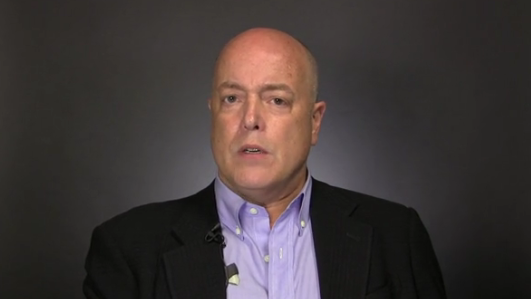 Author Stephen Jimenez's suggestion that The New York Times Magazine killed a 2004 story he had written about the murder of Matthew Shepard because it was too politically sensitive is false, according to the former Times editor who worked on the story.
Author Stephen Jimenez's suggestion that The New York Times Magazine killed a 2004 story he had written about the murder of Matthew Shepard because it was too politically sensitive is false, according to the former Times editor who worked on the story.
Jimenez claimed in the story -- and in a new book -- that Shepard, a gay University of Wyoming student murdered in 1998, was not killed in an act of anti-gay hate, but instead as a result of a drug-induced rage. Shepard's murder became a rallying call for the LGBT movement; a hate crimes prevention law named after him was signed into law in 2009.
Paul Tough, who was an editor at the magazine in 2004 and the one Jimenez says reviewed his piece, said the spiking of the story had nothing to do with politics. It just wasn't good enough.
“My recollection is definitely that it was not killed because it was politically sensitive, but that the story just wasn't there for all of the reasons that stories sometimes aren't there,” said Tough, now an author himself and Times magazine contributor. “I remember being really interested in the idea and I think the Times Magazine doesn't shy away from controversy and we're interested in new takes on things and the only reason we had assigned the story was this new idea.”
“But for whatever reason,” Tough added, Jimenez “was a person I think who didn't have a lot of experience in long-form magazine writing. And so the story never got to the level where we could publish it ... it was not killed for political reasons at all.”
Shepard truthers in the right-wing media have cited Jimenez's new book, The Book of Matt: Hidden Truths about the Murder of Matthew Shepard, to assail hate crime legislation and the larger push for LGBT rights. But Jimenez's argument is tainted by its reliance on wild extrapolation, questionable and often inconsistent sources, theories that critics of his work are engaged in a “cover-up” of politically sensitive truths, and the dismissal of any evidence that runs contrary to his central thesis.
In the book, Jimenez writes that up until the spring of 2004 he had been working on a Shepard report for The Times Magazine. On page 109 of The Book of Matt, Jimenez claims that after the departure of editor Adam Moss, the magazine killed the story because of its “politically sensitive content”:
Until just a few months before, I had been writing an investigative article about the murder as a freelancer for The New York Times Magazine. With the departure of head editor Adam Moss from the magazine, the story had been killed without explanation. Moss, who had commissioned the piece, is widely regarded as a brilliant and somewhat fearless editor; he also happens to be gay. Although his successors at the magazine commended my strong reporting and said they'd like to work with me on “something else,” I surmised that the story's politically sensitive content was the problem.
Reached for comment on the incident, Moss emailed, "[I] don't know anything about it." Gerald Marzorati, the editor who replaced Moss, also did not recall the story.
But Tough dismissed Jimenez's claims of political sensitivity.
“My recollection was that he and I went through a few edits and drafts together but I don't remember what the final sticking point was,” Tough said in a phone interview. “He certainly wrote a draft and my recollection is more than one draft, but in the editing process things are never done until they're done. For whatever reason I feel like for us it didn't get to the level of being a complete and publishable story.”
Asked about Jimenez's claims of political concern, Tough responded, “I would say his recollection is different than mine. He didn't talk to me about it before, or check in with me before saying that and so I don't think he's got any evidence of that. I understand having a story killed is a sad experience so I'm not surprised that that's his take.”
When Media Matters sought Jimenez's reaction to Tough's comments, he did not address the contradiction but rather said only that the “article killed by the Times Magazine became the basis” for a report on ABC's 20/20 that he coproduced later that year, and pointed to “two major journalism awards” that report had won.
But such regard for that piece was by no means universal. The 20/20 report -- criticized by journalists, media scholars, LGBT advocacy group GLAAD, and Shepard's family -- sparked a furor, especially in light of an email indicating that Jimenez had already made up his mind about the case before he and his ABC colleagues began reporting the story.